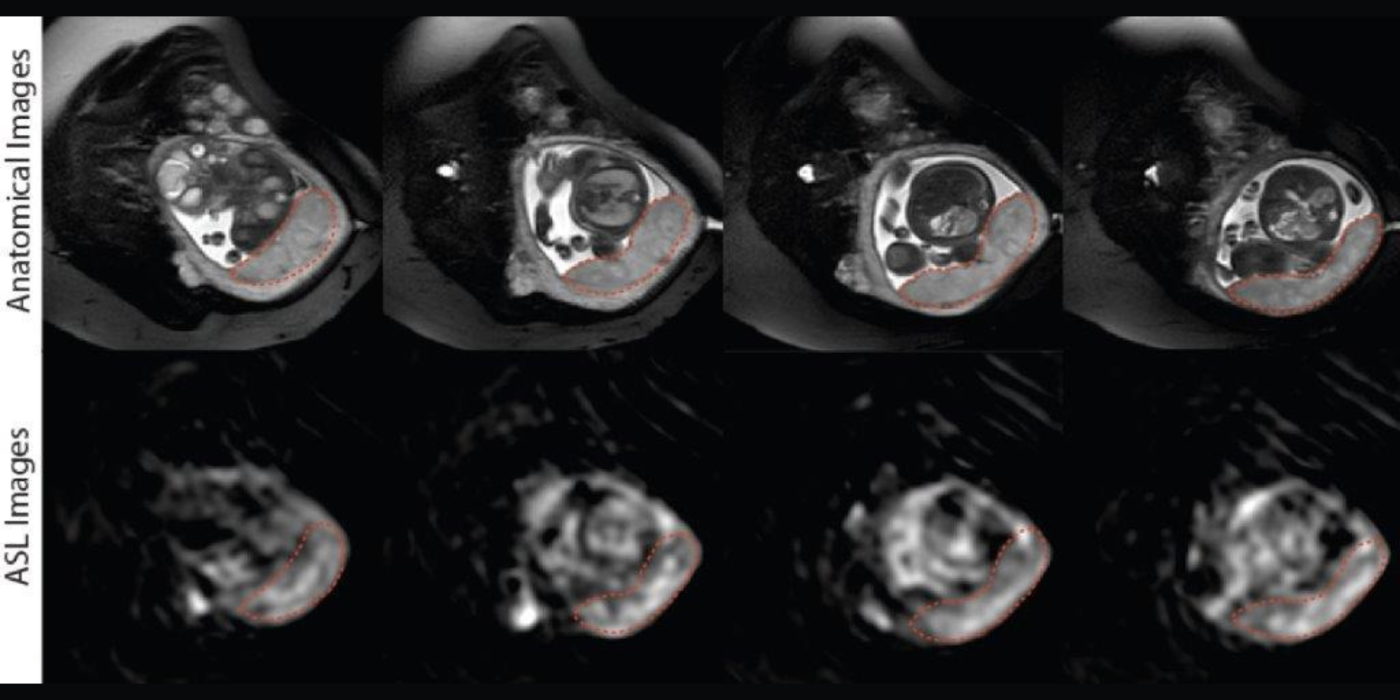
Placental perfusion imaging using arterial spin labeling (ASL)
Velocity-selective ASL of the placenta in a pregnant woman complicated by fetal heart disease (hypoplastic left heart syndrome) at gestational age of 29 weeks. ASL shows adequate perfusion signals in the placenta.
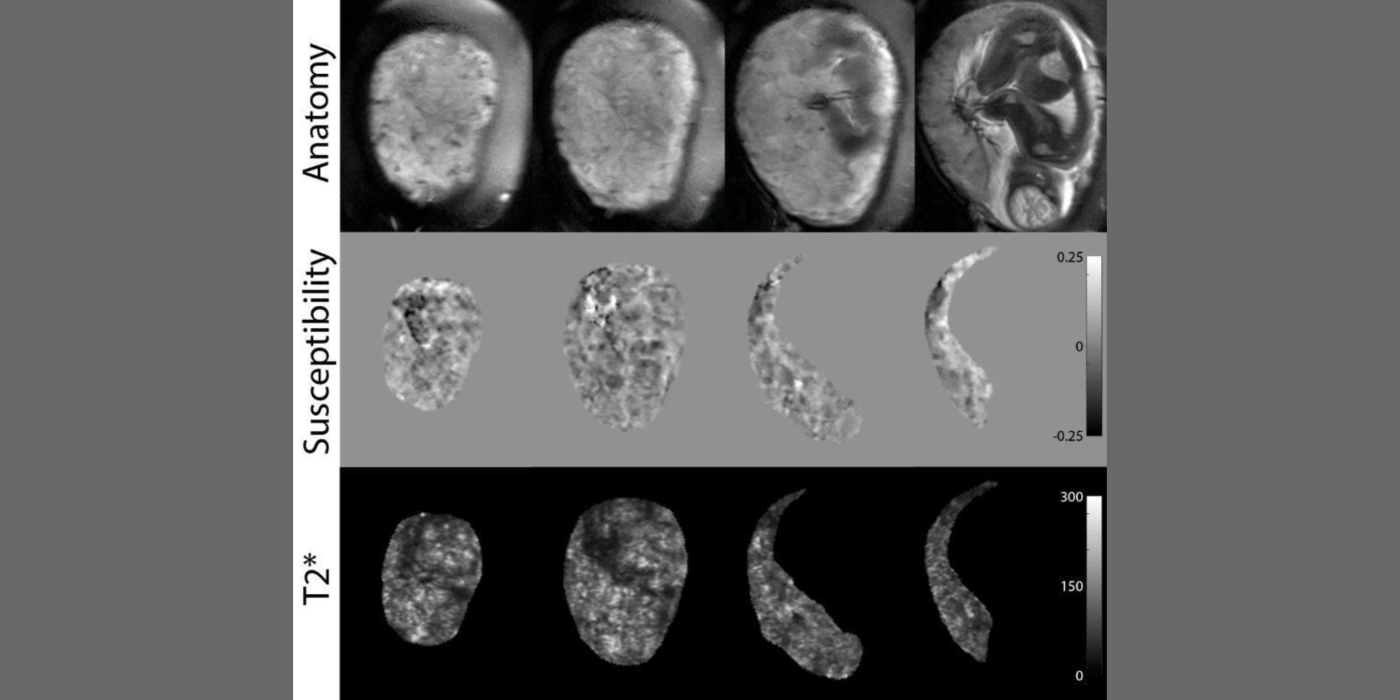
Quantitative susceptibility mapping (QSM) in the placenta
Susceptibility (in ppm) and T2* (in ms) maps acquired in a healthy pregnant woman demonstrate lobular contrast reflecting regional oxygenation differences.
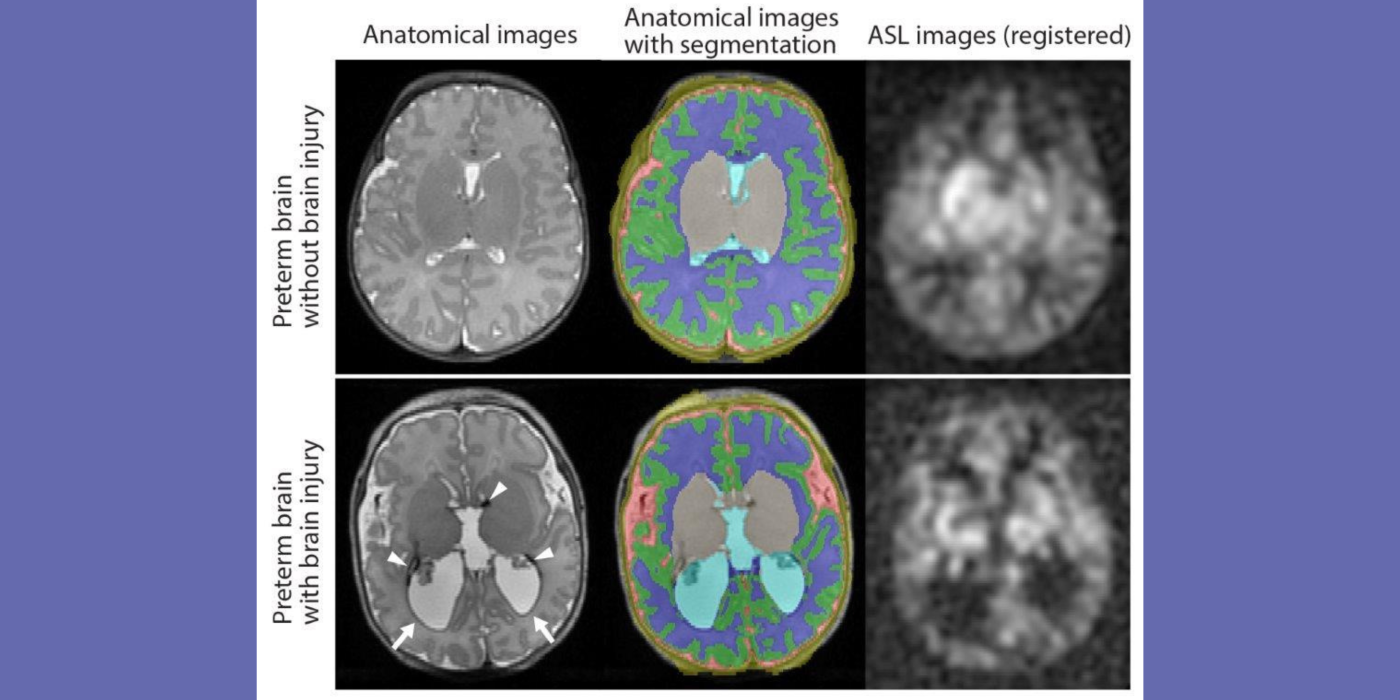
Cerebral blood flow (CBF) measured in very preterm infants using ASL
CBF measured in preterm infants with and without brain injury (arrows: dilated ventricles; arrowheads: intraventricular hemorrhage).
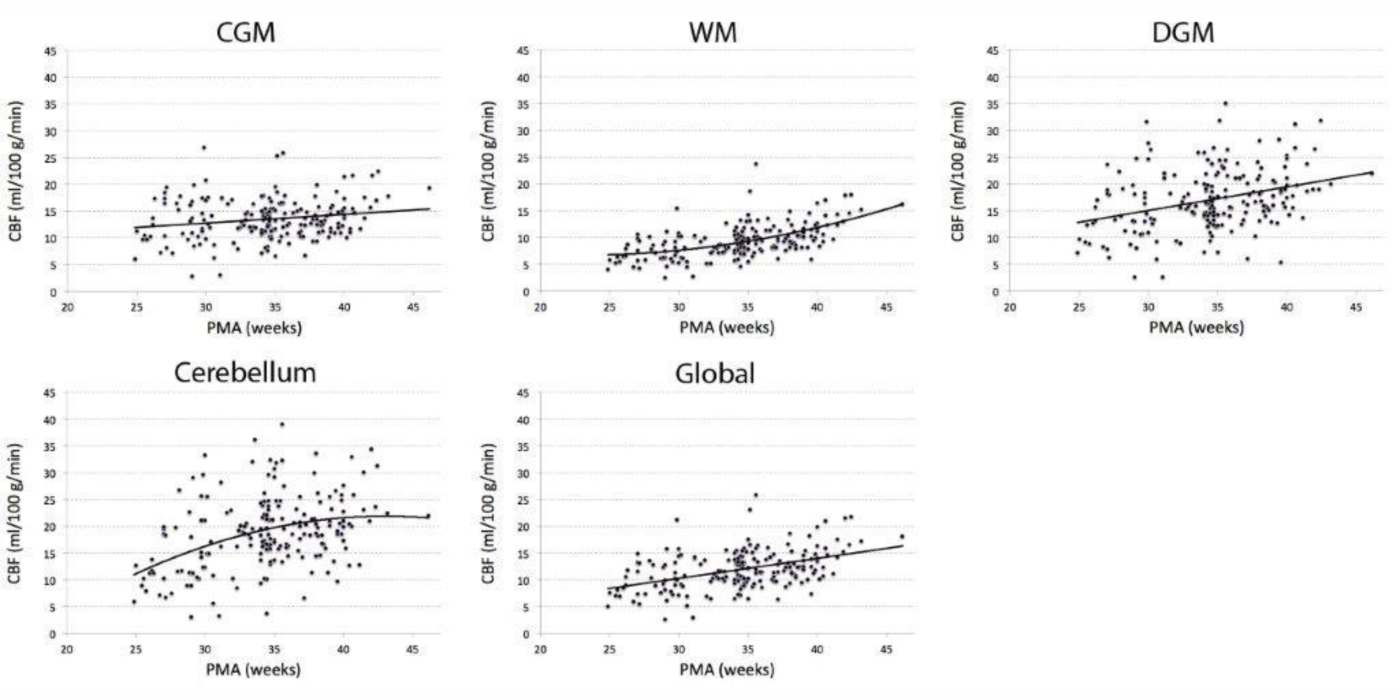
Longitudinal trajectories of regional CBF in very preterm infants
All regional and global CBF in preterm infants increased significantly with advancing postmenstrual age.
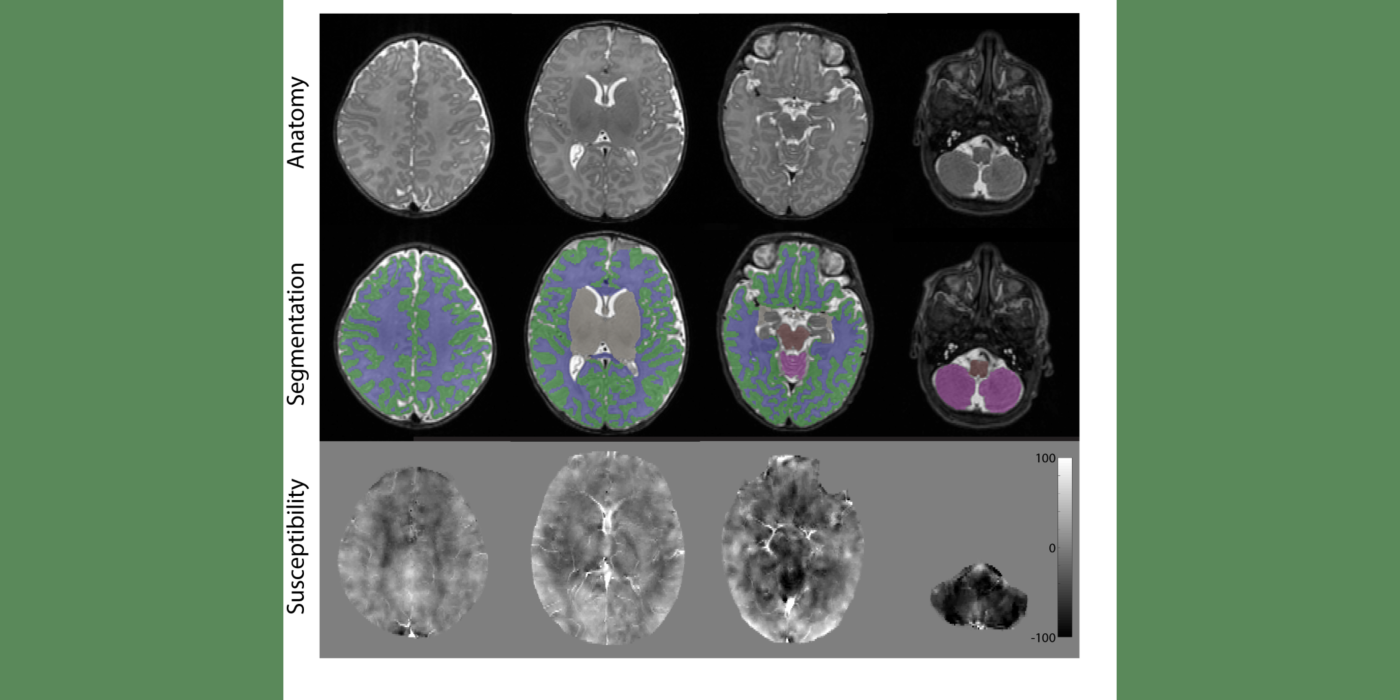
QSM in the newborn brain
Susceptibility maps (unit: ppb) acquired in the healthy newborn brain at postmenstrual age of 46 2/7 weeks. Marginal contrast (negative susceptibility) in several white matter fiber bundles indicates early myelination.



